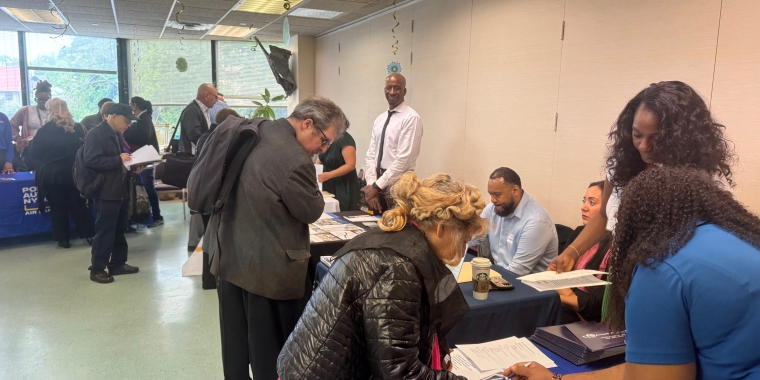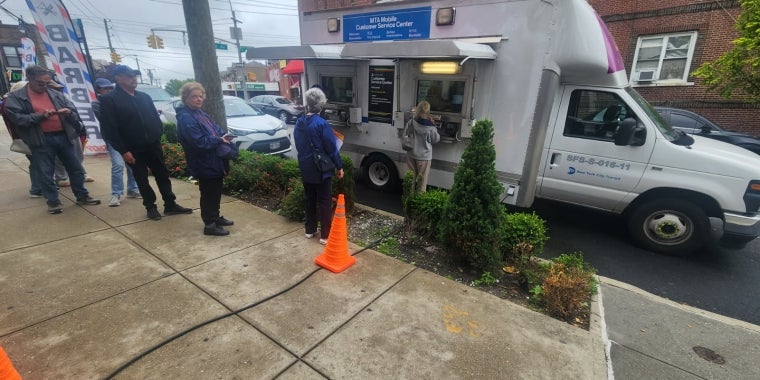
Senator Addabbo Hosts Interactive Alzheimer's Awareness Month Event
September 27, 2024

Dr. Morteza Modaber explains the symptoms of Alzheimer's Disease.
In recognition of September as World Alzheimer's Month, Senator Joseph P. Addabbo, Jr. hosted an impactful educational event designed to demystify Alzheimer’s Disease, a condition that affects millions of individuals and their caregivers. Collaborating with the Alzheimer’s Association, Jamaica Hospital, and the Richmond Hill Block Association, the event took place on September 25th at their regular meeting.
“Alzheimer’s Disease is not just a diagnosis; it profoundly impacts families and caregivers,” said Senator Addabbo. “Our community must unite to raise awareness, share vital resources, and support one another. This event serves as a platform for learning, connection, and empowerment, enabling us to positively influence the lives of those affected by this challenging condition.”
The event featured a comprehensive presentation by Dr. Morteza Modaber, a respected neurologist and Director of Neurology at Jamaica Hospital and Flushing Hospital Medical Center. Dr. Modaber discussed the distinctions between dementia and Alzheimer’s Disease, highlighting the emotional fluctuations associated with the condition. He also explained the phenomenon of “pleasantly demented,” where the progression of the disease can appear to align with natural aging, often leaving individuals in a jovial state.
Currently, an estimated 6.7 million Americans aged 65 and older are living with Alzheimer’s dementia, with projections indicating that this number could soar to 13.8 million by 2060, according to the National Institutes of Health. While there is no cure, Dr. Modaber emphasized that the disease's progression can be mitigated through medication, physical activity, a balanced diet, cognitive engagement, and proactive health measures.
Participants engaged in immersive activities led by the Alzheimer’s Association, which provided unique simulations to help them understand the challenges faced by those living with Alzheimer’s. Activities included brain-stimulating exercises, invigorating movement sessions, and discussions on cultivating healthy habits.
Among the engaging exercises was the “Post It” activity, where participants wrote down three hobbies. They tore up the first post-it to symbolize the loss of that activity due to Alzheimer’s, exchanged the second to demonstrate the limitations of choices in a care environment, and crumpled the third to reflect the reality of still being able to participate, albeit not as fully.
Another impactful demonstration involved participants wearing glasses smeared with Vaseline and donning a latex glove while sitting on their dominant hand. They attempted to answer questions and remember a series of words amid loud music, illustrating the challenges Alzheimer’s poses to vision, dexterity, and concentration.
To raise awareness, the Alzheimer’s Association distributed Informational materials, purple awareness bracelets and stress balls shaped like brains, celebrating the color associated with Alzheimer’s Month.
Share this Article or Press Release
Newsroom
Go to Newsroom


